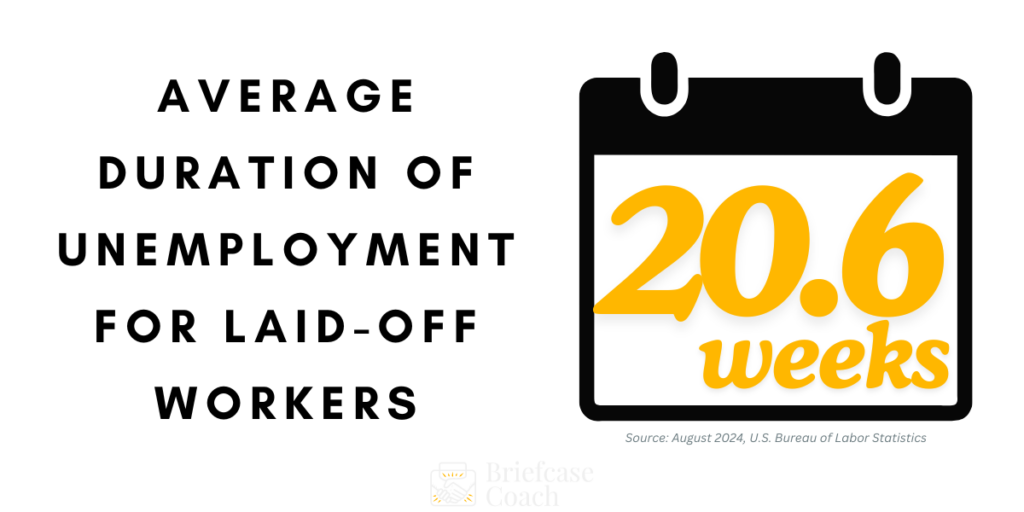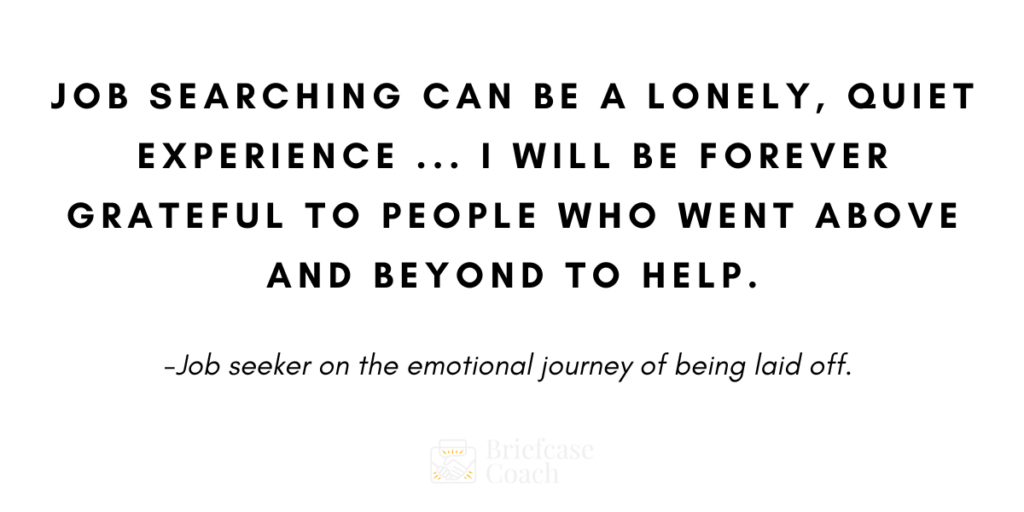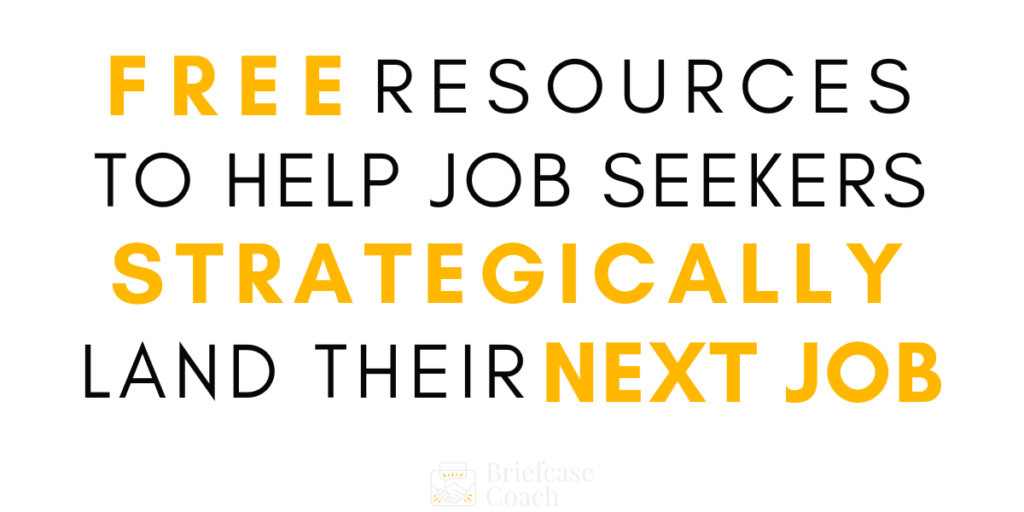The belief that long-term unemployment does not affect senior-level positions is a myth. Executives often face longer job searches compared to other professionals. The average duration of unemployment for laid-off workers is currently around 20.6 weeks (as of August 2024, U.S. Bureau of Labor Statistics). However, for senior-level roles, this period can be significantly longer due to the limited number of suitable openings and the complex hiring processes involved.

“My research over the past 15 years studying unemployment among white-collar American professionals shows that flawed understandings of long-term unemployment held by employers and former colleagues is one of the biggest barriers out-of-work people can face. This widespread stigma leads to isolation, makes looking for a job discouraging, and undermines well-being.”
Ofer Sharone, Harvard Business Review
I have a client who was laid off unexpectedly and led an active job search for over two years. Despite being well-qualified and having a compelling story, he consistently found himself in the “runner-up” position. However, after two years of active job searching, he received an amazing job offer and shared valuable insights gained from his experience. I am excited to share his words of wisdom with you.
*Be sure to read to the end for some Briefcase Coach created resources to help you expertly navigate your job search.
Let’s get started…
Sarah Johnston (SJ): I say this a lot, but it’s so true, unemployment happens to good people all the time. You had just won an award; you were managing a high-performing team and you introduced some really innovative ideas to the company. You were in a successful position and had a good rapport and reputation in your company. Did you anticipate what was to come?
Job Seeker: No one could have foreseen the challenges we faced. I believed my role was even more crucial during that time and felt confident in my ability to lead through disruption. Unfortunately, I was mistaken.
SJ: I imagine you felt a lot of different emotions during that time. Talk to me a little about the different emotional stages of your job search and what helped you process these feelings.
Job Seeker: After being let go, after the initial shock wore off, I remember feeling the excitement. I had never had a moment to catch my professional breath after a 20-year career and looked forward to exploring opportunities that would shape my next 20 years. And as I started applying and interviewing, the rejections were difficult, but I was able to get over that disappointment rather quickly. I was job hunting in a very tight, competitive market, and had no illusions it was going to be an easy process.

But what was most disappointing, and surprising, was the lack of help from certain contacts (weak and strong) and former colleagues during my search. Job searching can be a lonely, quiet experience, which is why I will be forever grateful to [the dozen or so] people who went above and beyond to help.
SJ: How did you maintain a positive outlook?
Job Seeker: “It just takes one,” were the words clanging around in my head. I was not going to let rejections or a lack of responses from people affect my approach. I was not going to get outworked by another candidate. Even a cold LinkedIn note to hiring managers. I read their essays, watched their panels, and listened to podcasts to find a nugget that spoke to my level of commitment and seriousness to the role.
There were a ton of outside influences I couldn’t control. I could control my own preparation though and knew it would eventually lead to good things.
SJ:,I often hear job seekers say that long-term unemployment internally alters their perspective on life. Do you look at the world differently?
Job Seeker: A few weeks after I was laid off, a VP at a very well-known streaming/content company posted this to his LinkedIn:
“Your email does not find me well, and you can’t grab time on my calendar to pick my brain. Maybe next year.”
Several of my contacts “Liked” it, and under normal circumstances, I would have too, except for this time, I was on the other side of things. For years, job seekers would reach out to me wanting to learn more about what I did and how they could break into my industry. And while I tried to be accommodating, I certainly didn’t make time for everyone.
I realized the hard way how [terrible] it is to be ignored. I have a very different outlook now that I know what it’s like to be on the outside looking in. But that outlook doesn’t include spite or vengeance… It’s the opposite. If I possess the ability to help, I will help.
SJ: What advice would you give your past self?
Job Seeker: The quick answer is likely a common one: Network better. I wanted to switch industries, and I just hadn’t built (and nurtured) enough contacts at companies that I wanted to work for.
The longer answer is probably more controversial: I would tell the previously employed version of myself to resign. Not because I needed to recharge (even though I probably did), but because I was never going to put in the requisite effort and energy into my job search. I would not have worked with talented career coaches or invested in myself through digital marketing certifications or taken inventory of my career and how my success lines up with certain roles at certain companies. I just never would have taken it seriously enough.
I’m not condoning or promoting anything, but it was a blessing being forced into this situation. However grueling and exasperating and soul-crushing the process was at times, it led me to where I’m supposed to be now.
Briefcase Coach Resources for Job Seekers
My advice to job seekers who ask is to make sure they know where they want to end up – industry, position, location, etc – find job descriptions that match their intentions and craft a resume target to those positions. Networking is also critical – talk to decision-makers, gather information from others in the industry you are looking to join, explore the organizational chart of the companies you want to hire you. Use training available on the hidden job market to help navigate away from job boards and mass resume submissions. Keep your chin held high – when the going gets tough, do your best to push through and stay focused on your end game.

There’s a wealth of free and inexpensive resources available to help you throughout your job search. Try not to feel discouraged or alone. Below is a list of resources created by Briefcase Coach to help you throughout your journey.
Online Job Boards & Free Resources
Our in-depth guide offers a comprehensive overview of these tools and platforms, including niche job boards tailored to specific industries. Remember, even during a difficult job market, the right resources can make all the difference in your pursuit of success.
Job Search Strategy Tracker
In order to make the job search less overwhelming, before you do anything else, you need a strategy. Use this free job search tracker to keep your targets and efforts organized.
For job seekers navigating a prolonged search, remember to:
- Define your goals: Clearly identify your desired industry, position, and location.
- Target your resume: Tailor your resume to specific job descriptions that align with your goals.
- Network strategically: Connect with decision-makers and gather information from individuals in your target industry. Explore company organizational charts.
- Utilize resources: Leverage resources on the hidden job market to go beyond traditional job boards.
- Stay positive: Maintain a positive mindset and focus on your end goal, even when facing setbacks.
Remember, persistence and a positive attitude are key. By utilizing available resources and maintaining focus, you can navigate a prolonged job search successfully.

